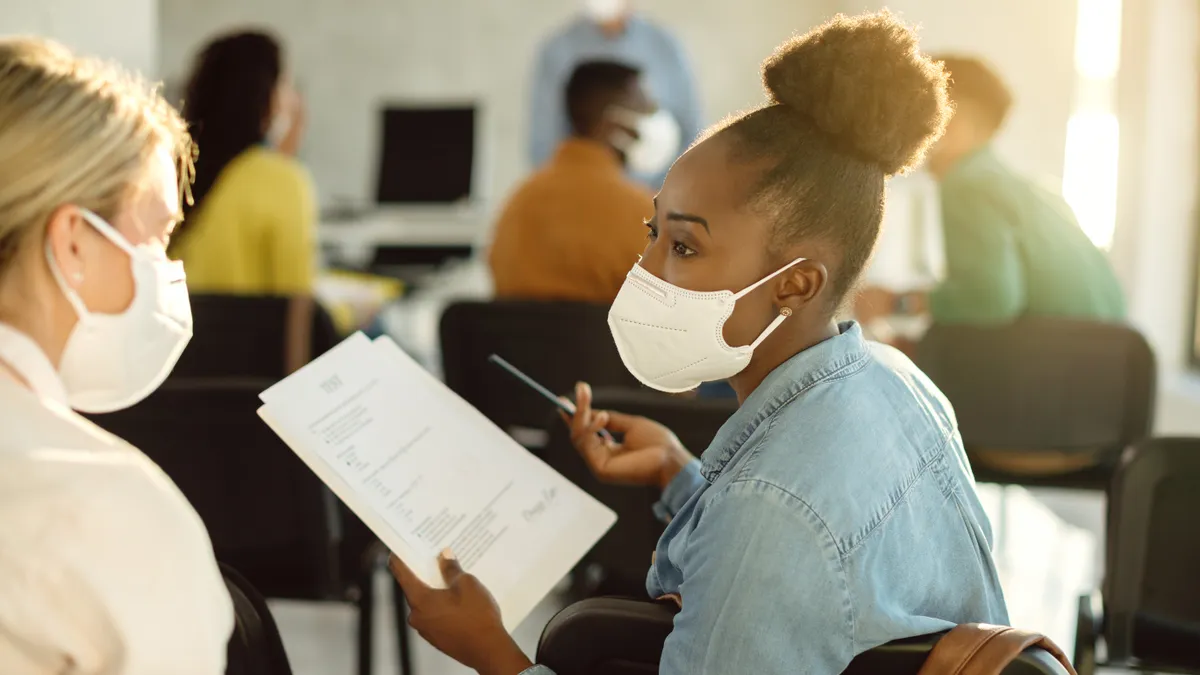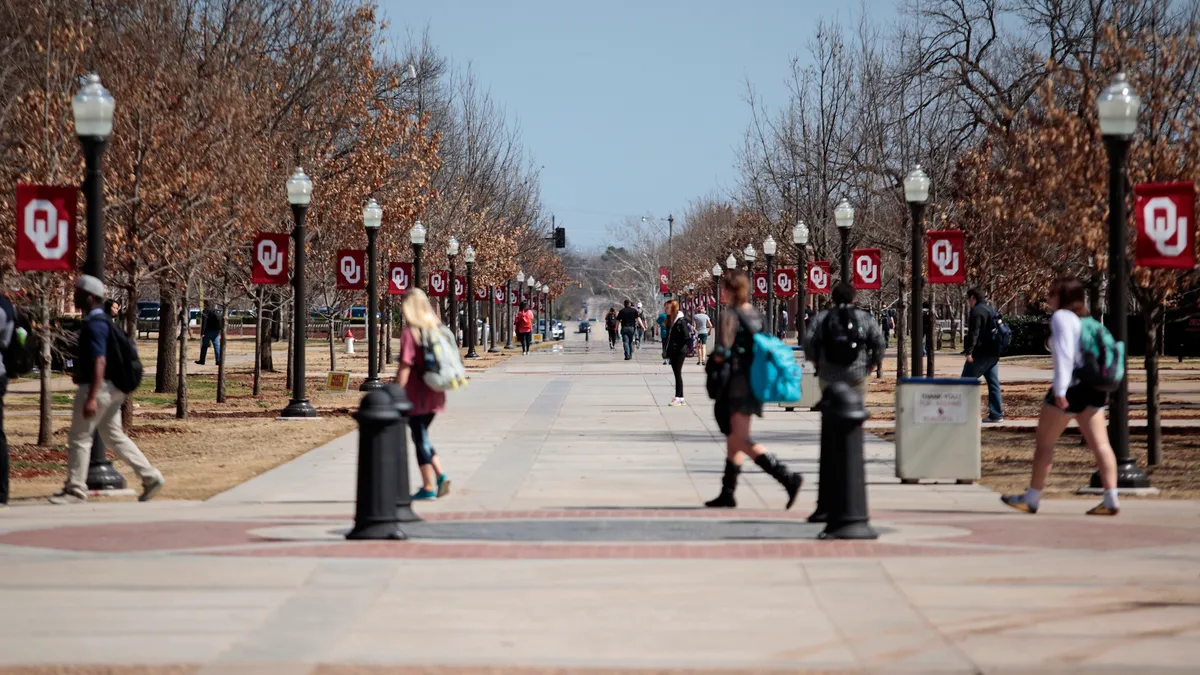As the nation moves toward safely returning to pre-pandemic life, college and university medical and administration leaders are working hard to bring students back to campuses for in-person learning. And while vaccinations, social distancing and mask wearing will all contribute to keeping the virus in check, testing is also an important tool.
Testing helps identify new cases and prevent the spread as well providing a sense of safety as college students return to dorms and in-person learning. But there are questions about the role testing plays in helping safely open the doors of college campuses across the nation. Dr. Jeff Andrews of BD, a leading global medical technology company, shares his expertise on the topic.
Is it safe for all students to return to campus right now or even in the next semester?
All things considered, the benefits of in-person learning and socializing probably outweigh the decreasing risk of COVID-19 infections on college and university campuses. Certainly, fully vaccinated students and professors should think it is safe to return to campus. However, professors or students with health conditions that place them at higher risk and who have not been vaccinated may choose to continue distance learning for themselves.
And let's not forget that there is a tenfold variation in the daily new case rates in different communities across the continental U.S. so safety may be higher at one campus than another. Apart from vaccinations and testing, campuses and states will determine what additional infection control measures need to be in place.
Campus leaders should know that rapid antigen testing can contribute to safety. Some have been requiring repeat serial testing on their campuses to assure negative results and promote safety.
Another use of rapid tests is for expedient contact tracing, serial testing, and then isolation of any contacts who are found to be positive. This is a time-honored public health tactic for eliminating an epidemic or pandemic. The overwhelming numbers of infections have not always permitted this to be effective in the past, but in this phase of the pandemic, we now have the tools to provide rapid and effective contact tracing and testing.
What is rapid antigen testing?
Rapid antigen testing is medical testing that people who are not skilled laboratory technicians can successfully complete. It's fast, easy and reliable. Antigen testing provides a 15-minute turnaround, so you get a result while the individual being tested is still present. It's also less expensive than lab-based PCR tests. Rapid antigen testing delivers a combination of simplicity, speed, portability, and reliable results that make it an ideal choice for use in universities and colleges.
One testing device being used in colleges, and universities nationwide is the BD VeritorTM ™ Plus System – a fully portable device with a simple testing process and with results that come back fast in as little as 15 minutes via a digital readout.
What's more, the BD VeritorTM Plus System can be paired with ImageMover, a companion mobile app that enables more streamlined reporting of testing results by capturing demographic details of those being tested, uploading COVID-19 test results, and automating reporting to public health agencies.
How can rapid antigen testing safeguard students and staff at universities and colleges?
Serial, rapid antigen testing enables those who receive negative test results to go about their school routine safely, and with as little disruption as possible. As part of a serial testing program, students, professors and administrators who are asymptomatic should be tested twice over two or three days with at least 24 hours and no more than 48 hours between tests.
After the first two tests, the interval for the ongoing repeat testing can be dictated by the university's program – once or twice weekly. If a student or teacher is identified as having COVID-19, the school can easily isolate and monitor that person, including tracing and contacting their contacts, and then beginning serial testing of all contacts.
It's also worth noting that rapid antigen testing goes beyond showing a "+" or "-" test result; it facilitates the entire campus community to fast-track a safe return to normalcy.
Are many colleges and universities using rapid antigen testing on their campuses?
Yes, we're seeing more and more colleges and universities across the country using serial rapid antigen testing as a key preventative measure against COVID-19. Ohio Wesleyan University, for example, is testing their athletes with BD's VeritorTM Plus System.
What should colleges and universities consider when implementing a testing program on-site on their campus?
There are two ways to successfully implement testing programs on campus. As one example, BD partners directly with schools, colleges, and universities to offer step-by-step guidance on how to implement a testing program as well as training on how to use the BD VeritorTM Plus System so they can run the testing program themselves. Armed with the learnings from other schools, along with recommended practices from the CDC, BD works with administrators to build out a cohesive testing program.
Alternatively, schools can work with a third-party testing company that can deliver a turnkey solution, alleviating the burden for school administrators and staff in managing the testing process.
From your perspective, why is it important to bring students back to campus?
The mental and emotional consequences of keeping these young adults from the full on-campus experience have been one of the many sad lessons we've learned from this global pandemic. Not only are they missing out on important in-person interaction with friends, peers and teachers, as well as sports and other extracurricular activities, but students have also experienced a substantially different educational experience than they expected.
Every student deserves to fully experience college life and certainly that is what we all want for them. While it may take time to return to the pre-pandemic college experience, rapid antigen testing can be an important part of providing confidence around student safety from the lecture hall to the quad to the football field.
Dr. Jeff Andrews is the Global Medical Affairs Vice President at BD Integrated Diagnostics Solutions. To learn how BD is supporting back-to-school programs, visit bdveritor.com.
Disclaimer:
- This product has not been FDA cleared or approved; but have been authorized by FDA under EUA for use by authorized laboratories
- The BD Veritor™ System for Rapid Detection of SARS-CoV-2 has been authorized only for the detection of proteins from SARS-CoV-2, not for any other viruses or pathogens; and,
- These products are only authorized for the duration of the declaration that circumstances exist justifying the authorization of emergency use of in vitro diagnostics for detection and/or diagnosis of COVID-19 under Section 564(b)(1) of the Federal Food, Drug and Cosmetic Act, 21 U.S.C. § 360bbb-3(b)(1), unless the declaration is terminated or authorization is revoked sooner.
- Testing is limited to laboratories certified under the Clinical Laboratory Improvement Amendments of 1988 (CLIA), 42 U.S.C §263a, that meet the requirements to perform moderate, high or waived complexity tests. This test is authorized for use at the Point of Care (POC), i.e., in patient care settings operating under a CLIA Certificate of Waiver, Certificate of Compliance, or Certificate of Accreditation. For more information, please see bdveritor.com.






